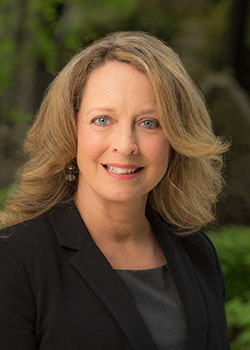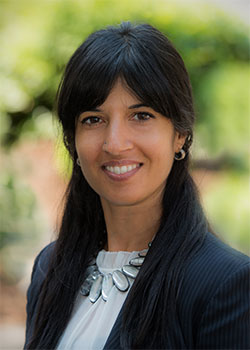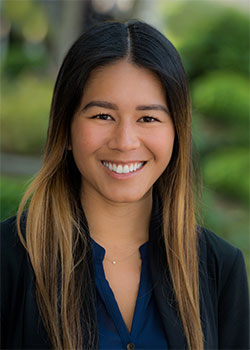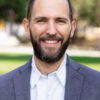You may have noticed that three new faces joined our Program Team last year. We’re excited to have their talents strengthening one of the Community Foundation’s primary goals: supporting and partnering with local nonprofits.
First to arrive was Deanna Green, Scholarship Manager and Program Associate, who manages our entire portfolio of scholarship funds and provides technical support to our grants program. Next we welcomed two new Program Officers, Esra Khalil and Maka Chee, who jointly oversee our discretionary grants program and work to build connections with nonprofits and other partners across the region.
Upon arriving, this trio dove headfirst into launching their first Focus Grant cycle. Now, as they approach their one year anniversaries, we wanted to make a proper—and admittedly overdue—introduction. Last week, we sat down to do just that by discussing their backgrounds, current roles and a few other random topics.
Whether or not you’ve had the chance to connect with them, you’ll want to read about the life experiences, hidden talents and personal interests that make our Program Team tick. I promise you; they’re too good to miss.
 Deanna Green
Deanna Green
Q. Share a defining experience in your life that shaped your worldview or aspirations?
Growing up in poverty with a teenage mother brought some difficult circumstances that shaped my outlook on life. Thankfully, other people in my life provided opportunities, environments and experiences that allowed me to build resilience and find encouragement. Don’t get me wrong. I’m eternally grateful for the values and expectations my mother instilled, but school is where I found the agency to create my own future.
The joys of school and learning provided one opportunity after another for personal development. The encouragement, support and guidance from teachers, coaches, peers and a special mentor kept me focused on my future. Education also opened the door to a nonprofit career helping other first-generation students achieve higher education goals for over twenty years. For me, education provided a transformational experience. It allowed me to break the cycle of poverty, pay it forward and realize the rewards of a fulfilling life.
Q. What’s the most important thing you’ve learned since arriving?
The most important thing I’ve learned since arriving at the Community Foundation is the power of collaboration. Organizations in our community are working together on innovative solutions to ensure that everyone can access pathways toward self-sufficiency. It’s humbling to see organizations rally around a shared goal and prioritize community need in their work. What’s most inspiring is the organic nature of the collaboration taking place. It isn’t a top down approach. People are genuinely committed to learning about the real struggles being faced. To get there, many nonprofits are honoring the experiences of their clients, asking them to share personal stories and assist in shaping the solutions. Organizations are sharing best practices, working in partnership and investing in long-term transformational change. And for me, it has been a true honor to walk alongside them.
Q. What is your hidden talent or superpower?
While I’d rather be kind like Glinda the Good Witch from the “Wizard of Oz” movie, my hidden talent is a frightful impersonation of the Wicked Witch of the West.
 Esra Khalil
Esra Khalil
Q. Were there early experiences in life that shaped your worldview or aspirations?
My first job out of college was working at a domestic violence organization that served immigrant women and children. I began working in the emergency shelter, then transitioned to the legal advocacy department. Being part of a culturally-responsive organization deeply rooted in social and economic justice was eye-opening. We focused not only on providing direct service, but also on breaking down the systemic barriers to self-sufficiency that survivors of domestic violence face, especially immigrants and refugees.
It was the most humbling work I’ve done in my life, and those early years on the front lines shaped my worldview in ways that no graduate school programming, travel or personal experience ever could. I learned that spurring transformational change for individuals requires addressing societal and systemic factors as well, which has become fundamental to the way I view programs and impact.
Q. Tell us about one of the primary goals or hopes for the Focus Grant program?
One of the overarching goals for the Focus Grant program is to ensure that our community not only benefits from it, but also informs its impact. The issues and injustices faced by our region’s most vulnerable people are complicated, which is why we believe these community members also hold the wisdom and power needed to create lasting change. The Focus Grant program has the potential to respond to broad priorities, especially those identified by under-resourced communities. We sit in a position to elevate those voices and provide a platform for them to steer investments toward effective solutions. More and more, we’re working to develop a feedback loop in our grantmaking process that centers community need in this way.
We’re also increasingly reaching out to community-based organizations, many of which were created by people living in the communities they aim to serve. We will continue to show up where and how we can, so that ultimately we can co-create a grantmaking portfolio that better reflects and supports the people of southwest Washington.
Q. Are there any favorite podcasts you’re listening to or books you’re reading right now?
I have recently discovered that podcasts and audiobooks can make some of the more mundane tasks in life, like commuting or cleaning, unbelievably enjoyable. I feel like there’s a bit of a renaissance for both mediums. I’m really into individual storytelling that centers human experience. These stories offer new perspectives that unearth our shared humanity and shift the prism from which we engage with the world.
In terms of audiobooks, I’m a recent convert to memoirs and autobiographies, especially when the author is doing the reading! A couple that come to mind are J.D. Vance’s “Hillbilly Elegy,” Trevor Noah’s “Born a Crime,” Tara Westover’s “Educated,” and—though not read by the author—James Baldwin’s “Notes of a Native Son.” In terms of podcasts, the same holds true, but I also indulge in a little sense-making and humor. My oldest running podcasts are “WTF” with Marc Maron and “Fresh Air” with Terry Gross. Both weave together humanity with humor and showcase the art of engaged and empathetic listening.
 Maka Chee
Maka Chee
Q. What drew you to the nonprofit sector and the field of philanthropy?
The opportunity to help students initially drew me to a mentoring job at a school success and college preparatory program for underrepresented youth and their families. The program was focused on low-income youth, youth of color and first-generation college students. I learned a lot in three years, especially about the grit and resilience of students and families. Both were required to overcome the challenges they faced when interacting with the public school system, accessing post-secondary education and striving to earn college degrees.
With philanthropy, I was drawn to the field several years ago because I wanted to continue to serve people who have historically been marginalized and underserved. I wanted to find solutions to close the opportunity gaps that exist for many children and their families. In my mind, philanthropy allows me the power, privilege and responsibility to learn about what works for certain communities and, more importantly, why those strategies work and how to replicate them in other places. I was drawn to the Community Foundation for Southwest Washington, because our team works in partnership with close-knit communities to create lasting, sustainable change.
Q. How is this community unique in relation to the work you do?
My work regularly takes me to Cowlitz County’s semi-urban cities of Kelso and Longview, and the more rural towns like Castle Rock, Kalama, Woodland, Ariel and others. These communities are very unique to one another, and vastly different from surrounding areas like Vancouver, Greater Portland, Seattle or the Greater Puget Sound. Some Cowlitz residents have shared that the area never truly recovered from the recession. It’s evident driving through some of the towns. Vacancy rates are very low, making affordable housing harder to come by.
While these problems aren’t unique to Cowlitz County, addressing them requires localized approaches. That’s good news for a region where organizing and collaborating to support one another comes naturally and happens frequently. I’ve seen it firsthand watching people come together to build Ariel’s first-ever library, to engage youth in industry jobs at the Goodwill Longview Work Opportunities Center and to ensure families have the resources they need to be successful in Woodland. People in Cowlitz County know what their communities’ needs are and how best to address them. They have a determination and perseverance that humbles me and makes me proud to partner on this important community work.
Q. What activity do you choose to do most outside of work?
When I’m not working, I try to get outside as much as possible. My partner and I share a love for outdoor adventures, so we often spend our free time running, hiking, climbing, fishing, skiing, backpacking or car camping. Being in nature fuels my soul and gives me energy to tackle the hard problems of life. The Pacific Northwest has some amazing trails, national parks, wilderness areas, and all of it is seemingly right outside our door. Some of our favorite places include Mt. Jefferson, the Enchantments, Steens Mountains, the Alvord Desert, the Wallowas and Mt. Hood—a summit we made last year!
Say “Hello” Anytime
These three women add an incredible breadth of knowledge and experience to the Foundation’s strategic grantmaking; not to mention some interesting hidden talents, pro tips and hiking stories to talk about.
Most important of all, is their enthusiasm for strengthening our region’s nonprofit sector and furthering the Community Foundation’s mission. They are excited and ready to meet organizations working to improve southwest Washington, wherever they are. So, whether you bump into them at an event or want to send them an email, don’t be afraid to say, “Hi.” No question is too strange or mundane, and their answers may pleasantly surprise you.
